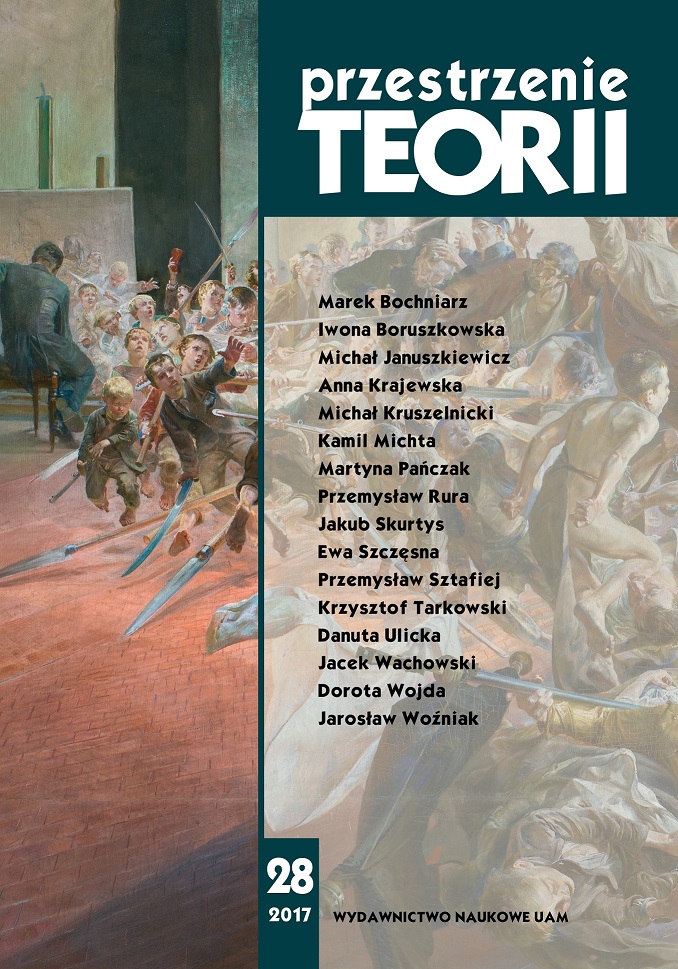„Antynaturalizm” Gombrowicza albo po co ekokrytyce pamięć o nowoczesności
Gombrowicz’s “anti-naturalism”, or why should ecocriticism remember modernity
Author(s): Martyna PańczakSubject(s): Social Sciences, Polish Literature, Theory of Literature
Published by: Uniwersytet Adama Mickiewicza
Keywords: nature; anthropocentrism; ecocriticism; posthumanism; Witold Gombrowicz;
Summary/Abstract: The article discusses Gombrowicz’s declared “anti-naturalism”, which is often seen as a gesture of negating the non-human world as boring and unworthy of interacting with. Nevertheless, this seemingly radical anthropocentrism does not imply absolute indifference. On the contrary, human anti-naturalness, as emphasized in the work of Gombrowicz, is considered arbitrary, founded on logocentrism and influential interpersonal doctrines. It may therefore be a tragic experience – depriving of a sense of belonging, but also deflating self-confidence, which is grounded in the belief in nature’s otherness. Gombrowicz’s “anti-naturalism”, crucial for the experience of modernity, relates to the problem of definition. The aversion to the non-human is, in fact, the fear of recognising one’s own non-identity; the angst caused by blurring the boundaries that used to arrange the world. It also leads to ignorance, cruelty and a state of “blissful unawareness” on the issues of animal others. In this respect, the writer’s remarks can be very inspiring for ecocritical thought. Gombrowicz once again reminds the reader of the necessity to stop conceiving “Human” as stable, homogenic and self-assured identity and for that reason, collaboration between ecocriticism and posthumanist critical approaches seems unavoidable.
Journal: Przestrzenie Teorii
- Issue Year: 2017
- Issue No: 28
- Page Range: 221-235
- Page Count: 15
- Language: Polish

